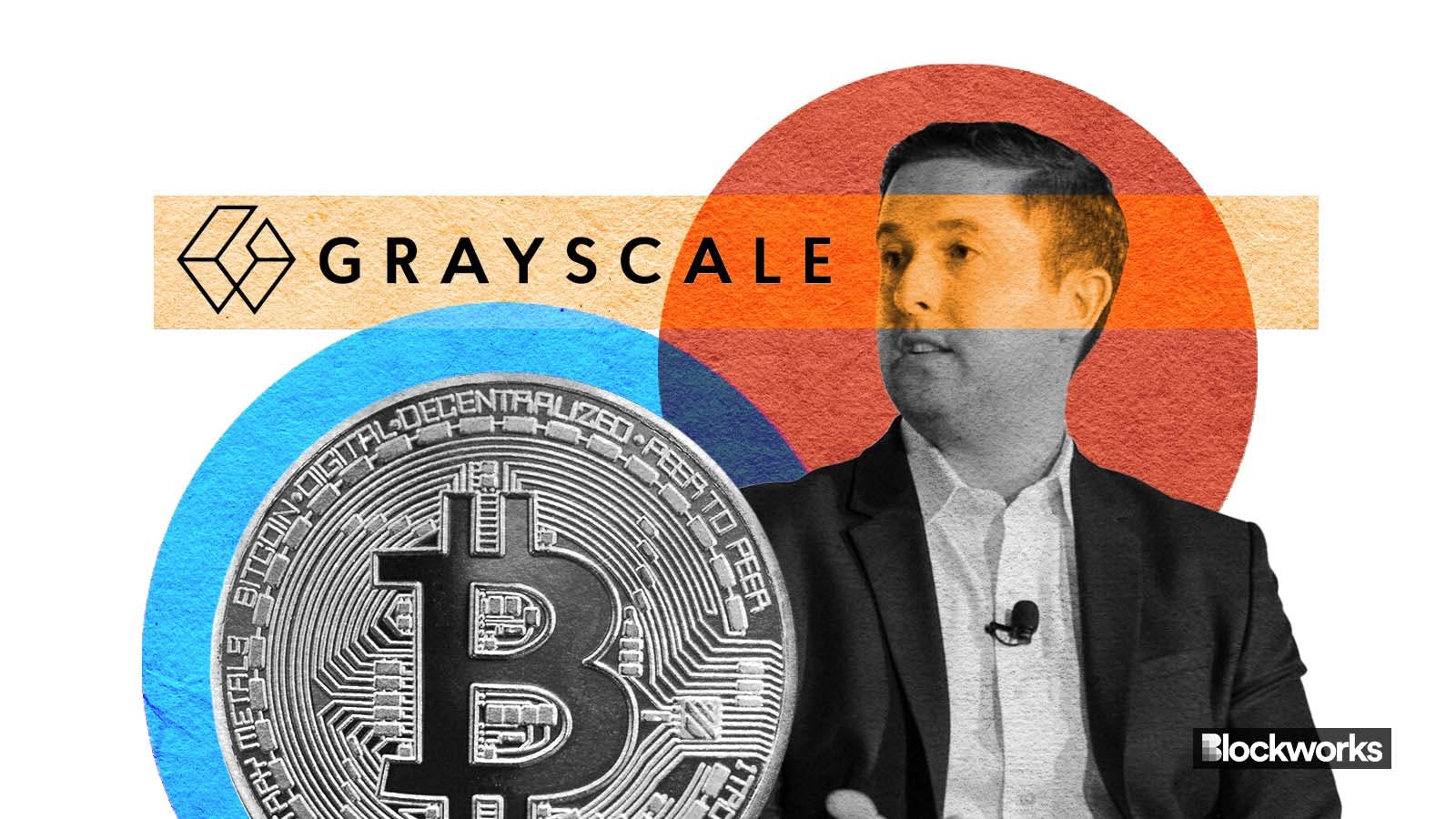Why the planned fee for Grayscale’s bitcoin ETF is much higher than others
GBTC is likely to see large outflows with a swathe of potential rival products priced competitively, Morningstar research executive says

Artwork by Crystal Le
As Grayscale appears ready to roll with a planned bitcoin ETF fee sky-high compared to possible US competitors, segment observers said the firm could soon endure outflows.
For those sifting through a flurry of Monday amendments to spot bitcoin ETF applications, a couple things became clear.
One: competition is fierce, as a number of fund groups appear set to offer similar fees at levels lower than some expected.
Second, the intended fee for Grayscale Investments’ proposed bitcoin ETF is much higher than the rest. The Grayscale fund, if approved, would carry a 1.5% fee, the company’s Monday filing indicates.
Meanwhile, rival Bitwise came in at 0.24% (24 basis points) for its proposed fund, lower than any of its competitors.
BlackRock, VanEck, Franklin Templeton, Fidelity, as well as Ark Invest and 21Shares, plotted fees under 40 basis points.
Read more: Investors are ‘the clear winners’ as bitcoin ETF fee battle comes into focus
The Securities and Exchange Commission could still deny such planned funds, as it has done repeatedly over the years. The regulator is expected to rule on the swathe of spot bitcoin ETF proposals by Wednesday.
Why Grayscale’s fee is an outlier
Grayscale’s process to launch a spot bitcoin ETF is a bit different from others. Though it seeks to bring to market a fund that would hold bitcoin directly, it would do so by converting its existing flagship Bitcoin Trust (GBTC) to an ETF wrapper.
GBTC, which currently carries a 2% yearly fee, launched in 2013 and already manages roughly $27 billion in assets.
Grayscale disallowed redemptions for the trust years ago. Though investors can sell eligible shares of GBTC on the secondary market, those considering that option in recent years would have to stomach selling their shares at a discount to their net asset value.
Bryan Armour, a director of passive strategies research at Morningstar, told Blockworks the firm again seems to be “cashing in on investors without an exit strategy.”
“Grayscale appears to be betting on investors sticking with GBTC despite the significantly higher fees, whether that be due to inertia or long-term investors held hostage by a hefty tax bill should they switch ETFs,” Armour told Blockworks.
Grayscale’s proposed 1.5% fee is more similar to spot bitcoin ETFs in other countries. The Purpose Bitcoin ETF in Canada charges a 1% fee, for example, while the Global X 21Shares Bitcoin ETF in Australia carries an expense ratio of 1.25%.
Despite the planned fee being well above its potential US competitors, Grayscale continues to position itself as unique to others.
A company spokesperson noted that a Grayscale bitcoin ETF would likely appeal to investors looking for a fund “with market-leading liquidity, tight spreads, high trading volumes and a decade-long track record of operational success.”
The Grayscale representative declined to comment on the proposed fee.
Read more: Grayscale is not afraid of bitcoin ETF rivals — but should it be?
Dave Nadig, a financial futurist at data firm VettaFi, noted that GBTC’s current 2% fee on roughly $27 billion in assets means the company is making more than $500 million off such fees. Reducing that fee to 1.5% already dents that figure by 25%, he added.
“I’m not surprised someone doesn’t want to give up that gravy train,” Nadig told Blockworks.
Grayscale could adjust the 1.5% fee going forward, industry watchers have noted. The firm could be “trying to find the sweet spot of minimizing [assets under management] declines and maintaining fees,” Scott Johnsson, a general partner at Van Buren Capital, said in a Monday X post.
GBTC outflows imminent — if approved?
Armour argued that investors shouldn’t pay 100 basis points for an ETF offering the same BTC exposure as funds they could buy for 0.25%.
“I expect large outflows from GBTC once it trades closer to [net asset value],” Armour said. “I have long said that the worst possible outcome for Grayscale was the approval of a spot bitcoin ETF, because there’s no way they could generate the same level of fee revenue in a competitive market with open redemptions.”
GBTC shares were trading at a 5.6% discount to its net asset value on Friday, according to YCharts.com. Grayscale has said the discount would essentially disappear when the trust is allowed to morph to an ETF.
Nadig said he expects investors to move from GBTC to other funds over time.
He added: “At those fee levels, it’s a one way door for [assets under management].”
Get the news in your inbox. Explore Blockworks newsletters:
- The Breakdown: Decoding crypto and the markets. Daily.
- 0xResearch: Alpha in your inbox. Think like an analyst.






